Tax and Zakat are among the key foundations that help regulate resources within the Kingdom of Saudi Arabia. Zakat, as a religious obligation, aims to achieve social solidarity, while tax serves as an economic tool that supports the state’s general budget and contributes to the development of infrastructure and public services.
Here emerges the role of Al-Hamli & Partners, a licensed firm of Certified Accountants and Auditors in Saudi Arabia, specializing in Zakat and the income tax accounting and ensuring full compliance with the Zakat and Income Tax System in Saudi Arabia) with precision and professionalism.
The Relationship Between Tax and Zakat and the Role of the Certified Accountant
Before exploring the connection between tax and zakat, let’s clarify the difference between them:
- Zakat is a mandatory act of worship in Islamic law, imposed on a specific type of wealth after one full Hijri year.
- Taxes are fees imposed by the government to cover expenses and fund public projects, such as Value Added Tax – VAT or Income Tax.
The Zakat and Tax System in Saudi Arabia. is considered an integrated framework managed by the Zakat, Tax, and Customs Authority (ZATCA), which unifies registration, inspection, and tax return procedures. This enhances financial compliance, reduces duplication of obligations, and improves the efficiency of managing both public and private funds.
The role of the Certified Accountant in organizing the relationship between tax and zakat includes:
- Preparing Zakat and Tax Returns and ensuring they are submitted on time.
- Representing the company before the Zakat, Tax, and Customs Authority during audits and inspections.
- Providing financial consultancy to reduce risks and enhance tax efficiency.
When Should Companies Register with the Zakat, Tax, and Customs Authority?

The Zakat, Tax, and Customs Authority (ZATCA) is the government body responsible for managing and collecting zakat and tax, as well as overseeing customs procedures in the Kingdom. Its mission is to ensure full compliance with Zakat and Income Tax regulations and facilitate fully digital submission processes that enhance e-government services.
Registration timing depends on the business type and revenue size:
- Saudi companies must register immediately after obtaining a commercial registration or upon starting actual operations.
- Foreign or mixed entities must register in the Income Tax System upon commencing operations in the Kingdom or signing their first contract or investment.
- Small and medium enterprises (SMEs) are required to register in the Zakat and Tax System once their annual revenues exceed the threshold set by the Authority.
At Al-Hamli & Partners, we offer comprehensive professional services in Tax and Zakat services, covering all Tax Consultancy Services, Value Added Tax, and E-Invoicing. For more information about our services, feel free to contact us at 0539300404.
Common Mistakes in Tax and Zakat Returns and How to Avoid Them
Tax and Zakat returns must be submitted on time through the official Zakat, Tax, and Customs Authority portal to determine the amounts due and avoid penalties or legal consequences.
The most common mistakes include:
- Submitting inaccurate or outdated financial data.
- Failing to submit Tax or Zakat returns before the deadline, which may result in heavy fines.
- Ignoring regulatory updates or new instructions in Tax and Zakat bylaws.
- Submitting amended returns or omitting key information.
- Relying solely on automated systems without consulting a Certified Accountant or professional Accounting Firm.
These errors can easily be avoided by:
- Keeping detailed and accurate financial documentation.
- Monitoring updates issued by the Zakat, Tax, and Customs Authority.
- Retaining Tax and Zakat records for at least five years.
- Consulting a Certified Public Accountant before submission.
Also Read:
- Best Chartered Accountants and Auditors Companies in Saudi Arabia 2025
- Why Do Large Companies Rely on Accounting Firms in Riyadh?
- Practical Steps to Improve Your Company’s Organizational Structure Through Management Consulting Services
- How Accounting Standards Help You Make More Accurate Financial Decisions
- The Most Important Internal Auditing Tasks and Their Role in Strengthening Financial Control
- The Role of Governance Goals in Attracting Investors and Enhancing Financial Performance
- What Is the Definition of Financial Accounting and Its Importance in Business Success?
Accurate Accounting Solutions for Managing Your Company’s Zakat and Income Tax with Al-Hamli & Partners
Proper management of your Zakat and Income Tax systems and timely submission of Tax Returns protects your business from penalties and enhances transparency and credibility with regulators and investors. This strengthens your decision-making process through accurate data and reliable reports.
At Abdullah Al-Hamli & Partners, a licensed firm of Certified Accountants and Auditors, we provide comprehensive solutions for managing Zakat, Income, and Taxes professionally, including:
- Preparing accurate Zakat and Tax Returns in compliance with the Zakat, Tax, and Customs Authority.
- Reviewing all financial records to verify compliance with the Zakat and Income System.
- Providing financial and economic consulting to support sound decision-making based on verified data.
- Representing companies before ZATCA during audits and inspections.
- Utilizing advanced digital accounting systems to analyze financial data and produce precise reports efficiently. For more information about our services, feel free to contact us at 0539300404.
Conclusion:
With the continuous development of Saudi Tax and Zakat laws and regulations, it has become essential to rely on a trusted Certified Accounting Firm or Certified Accountant to manage your company’s Zakat and Income Tax professionally and ensure full compliance, avoiding any penalties or delays.
Our firm also provides Zakat Planning Services, offering strategic consultations for implementing the new Zakat and Income Regulation (1445 edition), as a proactive step before the actual implementation, this ensures full compliance and helps avoid any potential issues with the Zakat, Tax, and Customs Authority during the official application, while improving accounting and administrative processes to achieve optimal financial and zakat results.
Common Questions:
What is the relationship between Saudi Customs and the Zakat, Tax, and Customs Authority?
Saudi Customs operates under the Zakat, Tax, and Customs Authority, which manages zakat, tax collection, and customs operations, ensuring smooth trade and strict compliance with Saudi regulations.
What are the main services available through the Zakat and Tax Authority website?
The Zakat and Tax Authority website offers various e-services such as taxpayer registration, tax return submission, Zakat Certificate issuance, and due payment inquiries, simplifying online dealings with Zakat and Tax systems.
How can I check my Zakat and Income dues online?
You can visit the Zakat, Tax, and Customs Authority website, choose “Inquiry about Zakat and Income dues,” and enter your tax or establishment number to view your due amounts accurately. For more information, contact us at 0539300404.
Can I hire an Accounting Firm to file my Zakat and Income Returns?
Yes, you can authorize a certified accounting firm like Al-Hamli & Partners to prepare and submit your Tax and Zakat Returns, ensuring full compliance with ZATCA regulations and avoiding errors or penalties. For more information about our services, feel free to contact us at 0539300404.


